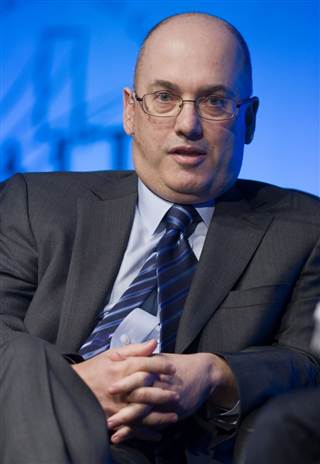No Criminal Charges for Hedge Fund SAC Capital – Fined $1.2 Billion for “Pervasive and Unprecedented” Insider Trading

US prosecutors announced Monday that hedge fund group SAC Capital would plead guilty to five counts of insider trading violations in the largest such settlement in US history. SAC will pay $1.2 billion—half in fines and half in profit forfeiture—on top of an earlier $616 million settlement with the Securities and Exchange Commission (SEC).
According to an indictment filed in July, the $15 billion hedge fund committed wire and securities fraud and traded on non-public information from 1999 to 2010 “on a scale without known precedent”. This systematic criminality resulted in “hundreds of millions” of dollars in gains for the firm.
The settlement does not include any criminal charges against Steven A. Cohen, who owns and manages the hedge fund. Cohen, whose net worth recently topped out at $9.4 billion, will be left with over $7 billion.
Although prosecutors stressed that the settlement does not provide any “individual with immunity from prosecution,” Cohen is unlikely to face charges. The Wall Street Journal reported, “Prosecutors, despite having long had Mr. Cohen in their sights, won’t charge him personally with any crime unless new evidence surfaces, according to people familiar with the probe.”
As a result of the settlement, SAC “will no longer accept outside investor funds and will shut down operations as an investment adviser,” according to US attorneys. Instead, the company will be confined largely to managing Cohen’s personal fortune. It will also be put on a five-year probation period during which it will be required to “employ appropriate compliance measures to identify and prevent insider trading.”
The $1.2 billion settlement amounts to less than the $1.3 billion Cohen personally made last year. The vast majority of Cohen’s personal fortune, amassed through what prosecutors said was “pervasive and unprecedented institutional misconduct” will remain untouched.
Prosecutors said that the company’s insider trading violations were “committed by numerous employees, occurring over the span of more than a decade, and involving the securities of more than 20 publicly-traded companies across multiple sectors of the economy.” They added that, “the systematic insider trading engaged in by SAC… was the predictable and foreseeable result of multiple institutional failures.”
In a statement, SAC brushed off any claim that the company was deliberately conducting insider trading, presenting itself as insufficiently vigilant over a handful of rogue traders. “We take responsibility for the handful of men who pleaded guilty,” SAC wrote in a statement, adding that “these wrongdoers do not represent the 3,000 honest men and women who have worked at the firm during the past 21 years. Even one person crossing the line into illegal behavior is too many and we greatly regret this conduct occurred.”
The hedge fund was known for generating average annual returns of over 30 percent—far higher than its competitors. The government’s investigations into the activities of SAC make clear that these massive earnings were generated largely on the basis of fraud and illegal insider trading.
The settlement arises out of a years-long investigation of SAC by the Federal Bureau of Investigation and the Manhattan US attorney’s office in connection with which a number of the hedge fund’s employees have been charged. Six of the eight SAC employees indicted so far have pled guilty to criminal charges. A number of these employees have cooperated with the prosecution in exchange for lighter penalties.
Despite SAC’s guilty plea, the Wall Street Journal reported that Goldman Sachs, Morgan Stanley, and JPMorgan will continue to do business with the company.
Steven A. Cohen is notorious for his lavish lifestyle and vast art collection. In May, Cohen, who is worth $8.3 billion, bought a $60 million ocean-side house in East Hampton, on Long Island, down the street from another house he owns. That same month, newspapers reported that Cohen had purchased Picasso’s painting “Le Rêve” for $155 million in one of the most expensive private art acquisitions in history.
SAC’s guilty plea has given prosecutors and politicians the opportunity to issue empty declarations that Wall Street criminality will not be tolerated. As Preet Bharara, the US Attorney responsible for the case said Monday, “No institution should rest easy in the belief that it is too big to jail. That is a moral hazard that a just society can ill afford.”
Nothing could be further from the truth. To this day, no executive responsible for the 2008 financial crash has been criminally charged, much less gone to jail. Cohen is the prime example of this. Even though SAC engaged in “pervasive and unprecedented” criminality, Cohen is allowed to keep the vast majority of his wealth.
SAC’s insider trading activities were particularly egregious — earning returns conspicuously higher than its competitors — but they are simply a more acute form of the cheating, stealing, and criminality that characterize the day-to-day activities of Wall Street.
The SAC settlement is a further expression of the attitude of the US government, and the Obama administration in particular, to Wall Street criminality. When a financial crime becomes to egregious to ignore, the government charges a few low-level traders and agrees to impose fines amounting to a fraction of institution’s ill-gotten gains, while shielding top executives from criminal prosecution.

